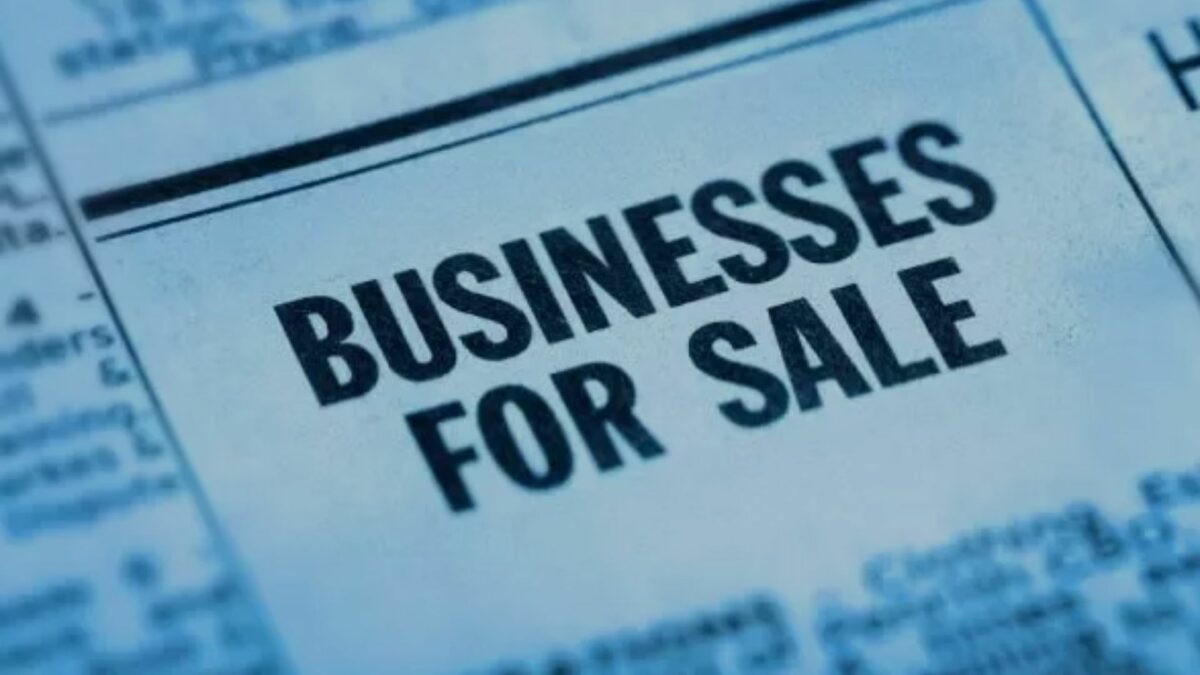Art is making something out of nothing and selling it.”
–Frank Zappa

“Everybody has a price.”
–Ted “The Million Dollar Man” DiBiase
When the founders of our company had our first corporate strategic planning retreat, we laid out this grandiose idea of growing to an immense size and having a company full of people who made the business run, and we could move up to become board members and issue brilliant strategic corporate guidance once a quarter, enabling the company to continue to grow and do great things. Either that, or within 5 years, we’d get sold.
The first image we had was a fallacy through and through. We were never going to get to the point where we could sit back on beaches drinking umbrella drinks and providing the occasional quarterly guidance through Skype conferences. At least, we weren’t going to get there in our lifetimes. It was a nice image, but it was unrealistic.
However, the being sold within 5 years image was realistic. We also walked away from the first opportunity.
The opportunity came serendipitously. At least, it seemed serendipitous when it first happened, but in retrospect, it came about because we placed ourselves in a position to be found. More about that in a little bit.
When someone with a real interest first posed the question “are you for sale?” to me, I gave the answer that I would continue to give from that point on. “My house is not for sale. However, if Bill Gates drives by and presents me with a $10 million certified check to buy my house, it’s for sale.”
What I meant by that statement was that everyone has their price. Even if what you build is your baby, the creation of sweat, tears, blood, long nights, dreams that wake you up in a cold fright that you’ve just missed payroll and now every one of your employees will starve, and it seems abhorrent to your soul that you cannot sell your baby, your business is for sale. There is always a price at which you will sell your company. If it’s the first time you do it, the price is probably pretty low – much lower than you think because you fear loss, and once you have an offer on the table, it’s hard to think about what will happen if you walk away from that money and then fail. If it’s not the first time or you already have walk-away money stashed in the bank, then the price will probably be higher because the psychic costs of loss won’t be as high for you, particularly if you’re not running at top speed on the hedonic treadmill.
Regardless, your business is always for sale. Those who create can create again.
How do you get yourself in the position where your business is for sale?

- Be around your competitors and be known to them. Your competitors are the most likely ones to buy you up. If you do something better than they do or you fill a gap that they have, then you become very lucrative for them. If you threaten their business, then you become a target because they can coopt their competition and remove a threat. Both of these offer real value for your competitors, and it’s less risky to acquire than it is to build the capability internally.
- Be around your complementers and be known to them. Is there a company which offers a product or service which is a complement to yours? Get to know them. Be very intimate with them and share with them how what you do can make them better/bigger/faster/stronger/more profitable.
- Come up with more ideas for your customers. Continue to help them to grow their businesses. Even if what you come up with has nothing to do with your business, you will start to become a nexus of value for them because they know that they can go to you for inspiration/motivation/profitability. The ideas you generate will be valuable for your customer, and it improves the chances that they buy you, even if it’s just to keep you from generating those great ideas for their competitors.
Hopefully, the day will come when you do get an offer for your company. Here’s a checklist – nowhere near complete – of some things to think about when evaluating the offer:
- What are the economic terms of the offer? Certainly, the most important piece of the offer will be what cash winds up in your pocket when everything is said and done.
- What are the earnout terms? Most offers won’t be straight cash on the barrelhead. You’ll have to continue to perform for some period of time to make it worth it for your buyer to buy your company.
- What is the culture of your acquirer like? Can you mesh with them, or is your life going to be months or years of hell? What about your employees? Will they smell rot and scatter like the four winds? Will they be motivated to stay on and continue to do great things even though their bosses, offices, and checks might change?
- What are the components of the offer – how much cash and how much equity? Cash is king, but if you believe in your acquirer, then there is value in getting some equity at a discount to present valuation. It’ll also keep you motivated to stay with them for the long haul.
- How long until you can start the next great thing? Entrepreneurship is a bug and a fire. If you’re good at it, and you’re an idea generator, you’ll keep generating ideas. The time component of how long you have to keep a blanket on that fire is of value.
- Can you work for someone else? Entrepreneurs usually start their own companies because they don’t work well for others. However, the golden handcuff period is a time when an entrepreneur MUST work for someone else and continue to do the amazing job that they did without a boss. Sometimes this isn’t the case because they’re buying the intellectual property or the customer list, but oftentimes, they need a transition period where they can spread your ideas and brilliance throughout the organization to ensure they capture the value associated with the acquisition. Can you, the entrepreneur at heart, survive that period and thrive in that environment?
The last point is one that is often overlooked because the entrepreneur has dollar signs floating in his eyes. A good way to mitigate the risk is to build your business with the goal of removing yourself as the keystone as soon as possible. If the business can run without you when you own it, then it can run without you when someone else owns it.
Can you let go of your baby, or can you separate the emotional aspect of entrepreneurship with the financial aspect? Tell us what you think in the comments below!
Author Profile
- John Davis is a nationally recognized expert on credit reporting, credit scoring, and identity theft. He has written four books about his expertise in the field and has been featured extensively in numerous media outlets such as The Wall Street Journal, The Washington Post, CNN, CBS News, CNBC, Fox Business, and many more. With over 20 years of experience helping consumers understand their credit and identity protection rights, John is passionate about empowering people to take control of their finances. He works with financial institutions to develop consumer-friendly policies that promote financial literacy and responsible borrowing habits.
Latest entries
 Low Income GrantsSeptember 25, 2023How to Get a Free Government Phone: A Step-by-Step Guide
Low Income GrantsSeptember 25, 2023How to Get a Free Government Phone: A Step-by-Step Guide Low Income GrantsSeptember 25, 2023Dental Charities That Help With Dental Costs
Low Income GrantsSeptember 25, 2023Dental Charities That Help With Dental Costs Low Income GrantsSeptember 25, 2023Low-Cost Hearing Aids for Seniors: A Comprehensive Guide
Low Income GrantsSeptember 25, 2023Low-Cost Hearing Aids for Seniors: A Comprehensive Guide Low Income GrantsSeptember 25, 2023Second Chance Apartments that Accept Evictions: A Comprehensive Guide
Low Income GrantsSeptember 25, 2023Second Chance Apartments that Accept Evictions: A Comprehensive Guide

